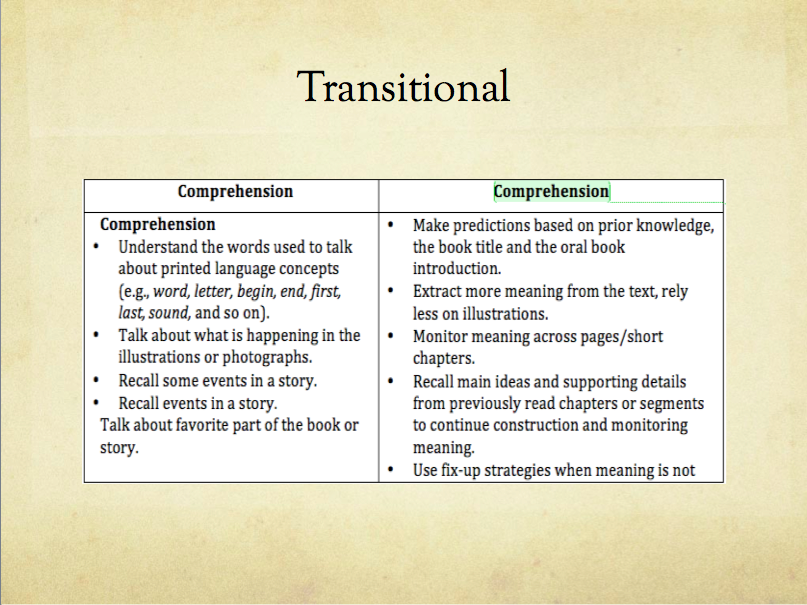 | ||||||||
|
This blog is a place for us to share information, thoughts, reflections... as a team. Enjoy!!
Saturday, December 27, 2014
Here's a great article on setting goals - similar to those teachers set at the team meetings. Enjoy. Courtesy of ASCD SmartBrief.
Monday, December 8, 2014
Here is a great article on how to use video when supporting teachers in learning and applying new resesarch. Enjoy courtesy of Tch.
|
|
|
|||||||||||||||||||||||||||||||||||
|
|
Saturday, November 29, 2014
Here is another great post from Choice Literacy. I highly recommend the Literacy Shed link. It has some great resources. Enjoy!
 | ||||||||
|
Thursday, November 6, 2014
Here is a great survey for parents to give their children. It measures their readiness for learning. Courtesy of America Achieves.
Do you ever wonder what makes your kids ready to learn?
Developing
learning habits like perseverance, hard work, and curiosity helps
children achieve more in school - and later in college, work, and life.
So I'm
writing to share a resource with you and the parents in your school.
Raise the Bar designed this free 5-minute Learning Habits survey to help
parents understand their children's strengths and weaknesses so they
are better equipped to help them improve.
Try it at: try.raisethebarparents.org
If
you like what you see, we hope you will share our Learning Habits
survey and the other resources on our site with parents in your school!
Enjoy!
Matt and the Raise the Bar Team
The
questions in the survey have been developed by Raise the Bar in
conjunction with the Character Lab to provide parents with formative
feedback on skills that researchers and teachers alike have linked with
success.
Monday, October 27, 2014
Wednesday, October 22, 2014
Monday, October 6, 2014
Monday, September 29, 2014
Sunday, September 28, 2014
Possibilities of PLC's. Courtesy of ASCD SmartBrief.
Superintendent shares PLC success story
City of Fairfax Schools Superintendent Peter Noonan rolled out professional learning communities in his district and credits the collaboration between administrators and educators with his district's academic gains. In this Q&A, he describes his district's PLC journey and offers tips for implementation. District Administration magazine online (9/24)
City of Fairfax Schools Superintendent Peter Noonan rolled out professional learning communities in his district and credits the collaboration between administrators and educators with his district's academic gains. In this Q&A, he describes his district's PLC journey and offers tips for implementation. District Administration magazine online (9/24)
Saturday, September 13, 2014
Finding Writing Topics is one of the biggest challenges in the classroom. Here are some great articles on the topic. Enjoy! Courtesy of Choice Literacy

|
Monday, August 18, 2014
Here are some great ideas on writing for the new school year. Courtesy of Choice Literacy.
 | ||||||||
|
Wednesday, August 13, 2014
As you begin the school year, here are some ideas about the lay out in your rooms. Courtesy of Choice Literacy.
 | ||||||||
|
Subscribe to:
Posts (Atom)























